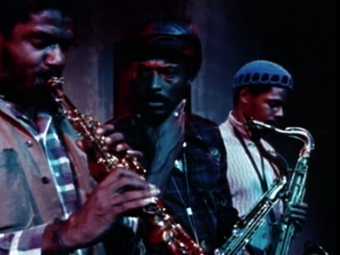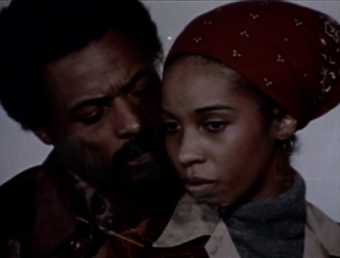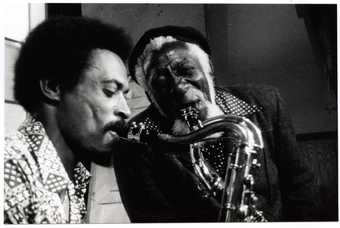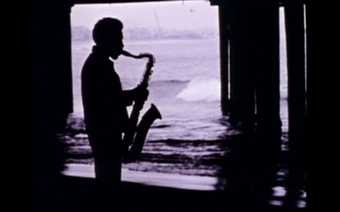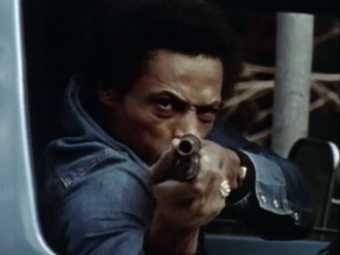If you look at Passing Through, the first 15 minutes of that film is what I call Africana cinema. What African American cinema is capable of, it's a jazz cinema literally. It's a cinematic structure that is jazz. You can see for the first time in the history of film, that an African American filmmaker makes a film: You see the colours of musical instruments transcribed into colour.
Haile Gerima, ‘Haile Gerima: In Search of an Africana Cinema’, Journal of Black Studies, July 2008
Passing Through
Larry Clark, USA 1977, 35mm, colour, 111 min
Newly restored print courtesy of the UCLA Film & Television Archive
Passing Through 1977 is one of the most vivid and compelling responses to African American music in cinema. Larry Clark’s masterpiece proposes a unique visual language to depict the riches, rhythms and cultural importance of jazz music and its role in black liberation. Impassioned and brooding, the film is a fractured response to the injustices of the period and the ongoing exploitation of Black artists and their culture. Featuring the music of Eric Dolphy, Charlie Parker, John Coltrane, Sun Ra and live performances by Horace Tapscott's Pan African People's Arkestra.
Centred on the troubled musician Eddie Warmack, who is released from prison for the murder of a white gangster, the film follows him through an underground world attempting to create music without compromise. With help from a legendary musician, Warmack reconnects to the African roots of jazz, linking its liberation from the commercial music industry to the black liberation movements in Africa and America.
Innovatively mixing a range of film stocks, from vibrant colour to black and white, Passing Through riffs off the character's memories and broader histories of African exploitation with archival footage of imperialist atrocities and recent moments of violent resistance. Seeking to readdress the history of post-war Jazz and the legacy of many unacknowledged musicians Passing Through is an intense, incantatory reflection on the dividing line between expression and violence and the connections between music and liberation.
World Saxophone Quartet
Barbara McCullough, USA 1980, video, colour, 4 min
An energetic portrait of the innovative World Saxophone Quartet who performed without a rhythm section. Founded by free-jazz saxophonists, Hamiet Bluiet, Oliver Lake, Julius Hemphill, and David Murray McCullough's early video depicts the group cutting rapidly between them in concert and in conversation.

